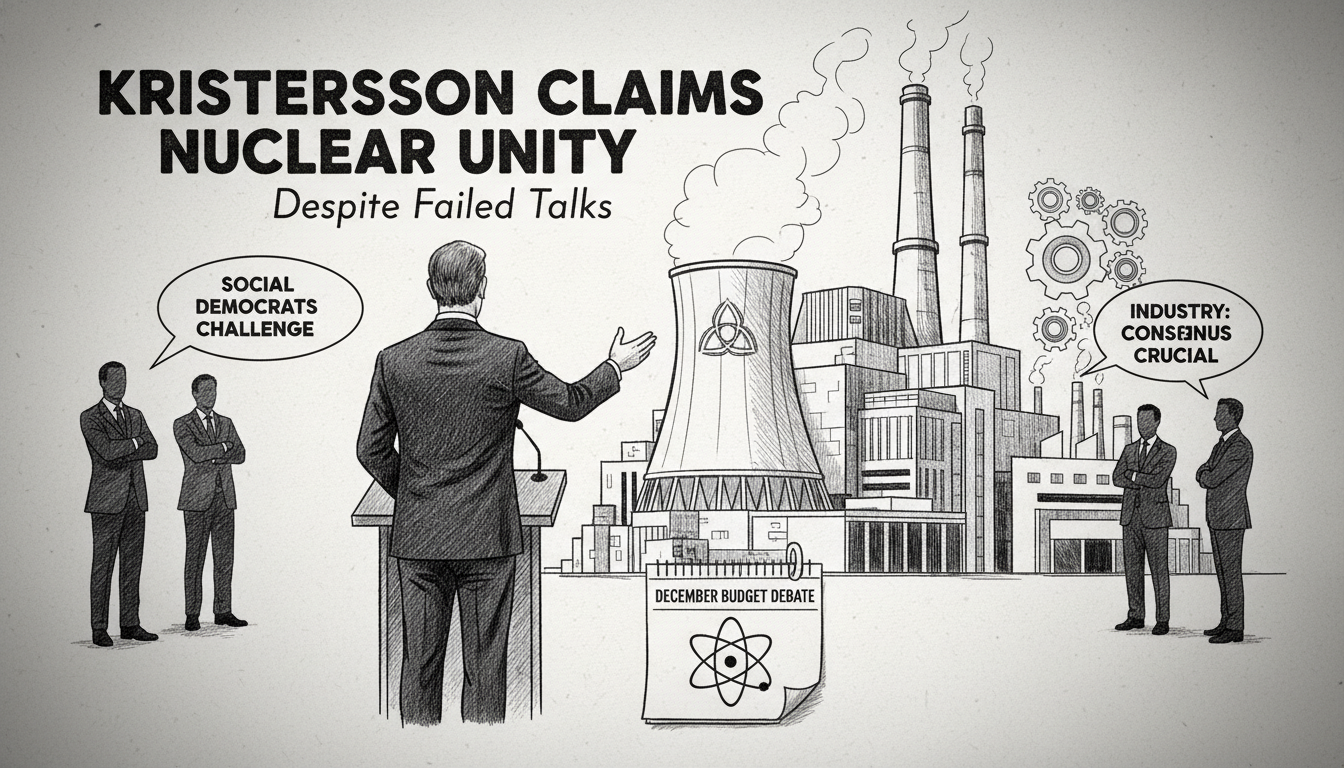Prime Minister Ulf Kristersson has downplayed the significance of a broad energy agreement while asserting parliamentary unity on nuclear power expansion. The Moderate Party leader made these statements during a school visit in Sollentuna, following collapsed negotiations between governing parties.
Energy Minister Ebba Busch recently criticized her coalition partners for failing to reach consensus. The talks broke down primarily over Social Democratic demands for offshore wind power to receive equal state support as nuclear energy, a position Sweden Democrats strongly oppose.
Kristersson maintains his perception of substantial agreement exists despite these conflicts. He told reporters that most historical energy agreements have merely concealed disagreements rather than solving problems. The prime minister pointed to Vattenfall's recent deal with industrial consortium Industrikraft as evidence of practical consensus emerging.
Sweden's nuclear energy debate spans 45 years of continuous disagreement. Kristersson believes the country now approaches decisive parliamentary action that will enable business investment certainty. He anticipates 80% parliamentary support for nuclear power when the budget expenditure area covering nuclear financing frameworks undergoes debate in December.
Social Democratic energy spokesperson Fredrik Olovsson strongly contests Kristersson's unity claims. He expressed surprise at the prime minister downplaying agreement importance, noting that all industry stakeholders consider broad consensus critically important. Olovsson confirmed his party won't support the government's budget, creating potential governing challenges.
The political reality remains that the government and Sweden Democrats hold majority power to pass nuclear legislation regardless of opposition objections. This situation reflects Sweden's unique political landscape where minority governments often depend on shifting parliamentary alliances.
Industry observers note the fundamental contradiction in claiming unity while acknowledging failed negotiations. The energy sector requires long-term stability for major infrastructure investments, making political consensus particularly valuable. Sweden's transition to fossil-free energy depends on reliable policy frameworks that survive electoral cycles.
International readers should understand that Swedish energy policy traditionally values cross-party cooperation. The current breakdown represents a significant departure from this tradition, potentially affecting Sweden's climate goals and industrial competitiveness.
What happens next depends on December's budget debate and whether the government can implement its nuclear agenda without broader parliamentary support. The outcome will shape Sweden's energy landscape for decades and influence how other nations approach similar transitions.

